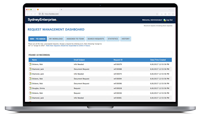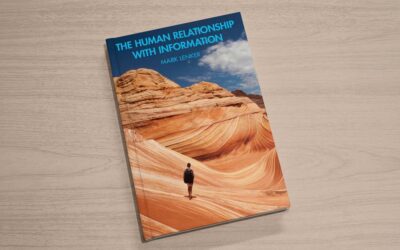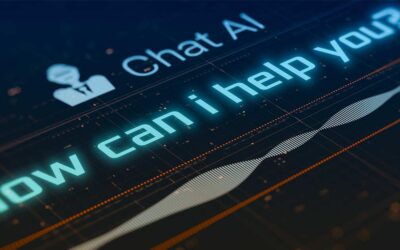Recommended AI Literacy Frameworks for Special Librarians
Lauren Hays
In a previous post, I defined AI literacy and AI competency. As a reminder, Chiu et al. (2024) defined AI literacy as “an individual’s ability to clearly explain how AI technologies work and impact society, as well as to use them in an ethical and responsible manner and to effectively communicate and collaborate with them in any setting. It focuses on knowing (i.e. knowledge and skills).”
Literacy does not necessarily equal competency, so Chiu et al. (2024) defined AI competency as “an individual’s confidence and ability to clearly explain how AI technologies work and impact society, as well as to use them in an ethical and responsible manner and to effectively communicate and collaborate with them in any setting. They should have the confidence and ability to self-reflect on their AI understanding for further learning. It focuses on how well individuals use AI in beneficial ways.”
Of course, these are just one set of definitions for each term, but I believe they effectively capture the essential knowledge and skills required for individuals to develop literacy and competence in artificial intelligence. While there are other ways to define these terms, these definitions provide a solid foundation for understanding the core concepts and abilities necessary in this rapidly evolving field.
Why Is AI Literacy Important for Knowledge Professionals?
AI is transforming how information is managed, accessed, and shared. For knowledge professionals, including librarians and archivists, understanding AI literacy is essential to remain relevant and effective in their roles. Developing AI literacy helps these professionals:
- Navigate AI tools for research and discovery
- Support AI policy development
- Ensure ethical and responsible use of AI in their organizations
- Communicate effectively about AI with stakeholders
Understanding the distinction between literacy and competency ensures that professionals not only grasp AI concepts but also apply them confidently in real-world scenarios.
Frameworks to Guide AI Literacy and Competency Development
To support you in broadening your perspective on how you might integrate AI literacy and AI competency into your work, I would like to share a selection of diverse frameworks.
These frameworks provide valuable insights and approaches that can inspire and guide your efforts, helping you determine the best ways to address these essential skills and knowledge areas in your specific context.
- AI Skills for Business Competency Framework from The Alan Turing Institute
- Artificial Intelligence Competency Model from the United States Office of Personnel Management
- Digital Promise AI Literacy Framework
- Barnard College Framework published in EDUCAUSE
- aiEDU’s AI Readiness Framework
- EDUCAUSE: AI Literacy in Teaching and Learning: A Durable Framework for Higher Education
- UNESCO AI Competency Framework for Students
- UNESCO AI Competency Framework for Teachers
- The CLEAR path: A framework for enhancing information literacy through prompt engineering
How to Choose the Right Framework for Your Context
This list includes frameworks focused on different learner groups. I hope that seeing the range of frameworks, literacy skills, and competencies sparks ideas for what makes sense in your context. When choosing an AI literacy framework, consider the following questions:
- Who are the primary stakeholders (students, educators, professionals)?
- What are the goals of developing AI literacy and competency in your organization?
- How can you tailor the framework to your specific needs?
Collaborate with Stakeholders to Build AI Skills
I also encourage you to engage in meaningful conversations with your stakeholders to identify the specific AI skills and competencies required meet your goals effectively. Collaborating with stakeholders allows you to gather diverse perspectives, align on priorities, and ensure that the support you provide is both relevant and impactful in addressing their needs.
Developing AI literacy and competency is not a one-time task—it’s an ongoing journey. By leveraging established frameworks and collaborating with your community, you can create a sustainable path to AI readiness.
Lauren Hays
Dr. Lauren Hays is an Assistant Professor of Instructional Technology at the University of Central Missouri and a frequent presenter and interviewer on topics related to special libraries and librarianship. Please read Lauren’s other posts relevant to special librarians and learn about Lucidea’s powerful integrated library systems, SydneyDigital and GeniePlus.
**Disclaimer: Any in-line promotional text does not imply Lucidea product endorsement by the author of this post.
Never miss another post. Subscribe today!
Similar Posts
3 Ways to Lead from Within the School Library
School librarians can lead from within their organization. Librarian Lauren Hays shares practical ways to identify tech gaps, support staff, and keep learning.
Interview with the Author: Mark Lenker on The Human Relationship with Information
An interview with librarian, philosopher, and author Mark Lenker on his series of short, reflective essays that explore information literacy through a philosophical lens.
An Interview with Author Barbara Band on Championing Your School Library
School library advocate Barbara Band shares guidance from her book on championing school libraries, including strategic advocacy, marketing, and demonstrating impact.
ACRL’s AI Competencies for Librarians: An Overview
ACRL’s AI competencies cover ethics, AI literacy, evaluation, and responsible use. This overview summarizes each competency and how they translate across different library types.





Leave a Comment
Comments are reviewed and must adhere to our comments policy.
0 Comments